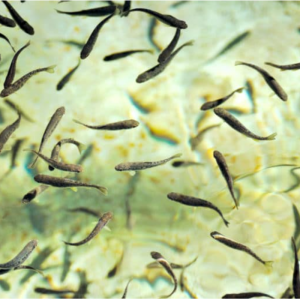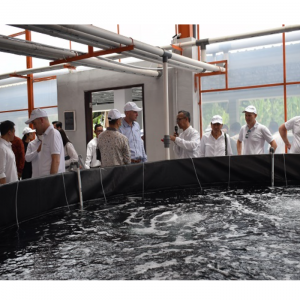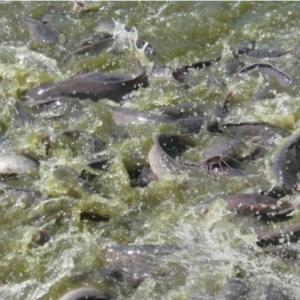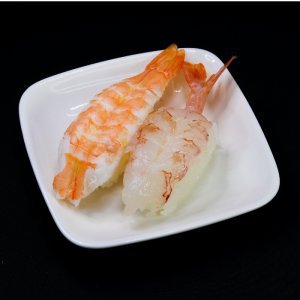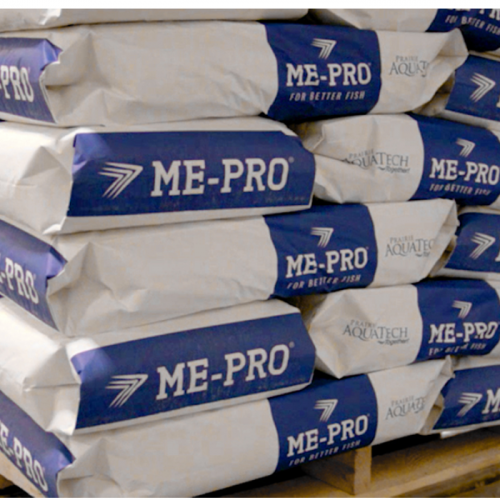
Innovation Award 2020 Finalist: ME-PRO® from Prairie AquaTech
| Fri, 18 Sep 2020 - 14:27
An alternative aquaculture feed ingredient manufactured in the middle of the American Plains has been selected as one of three finalists for the Global Aquaculture Alliance’s annual Global Aquaculture Innovation Award.
ME-PRO® is a plant-based protein ingredient that has two primary goals: sustainability and digestibility, and not necessarily in that order. Created by Prairie AquaTech of Brookings, South Dakota, USA, ME-PRO is short for “microbially enhanced protein,” explained CEO Mark Luecke.
“Our technology can handle many types of plant protein. Soybean meal has a good starting protein content, about 45 percent,” Luecke told the Advocate. “But there are a number of antinutritional factors that need to be addressed, like allergenic proteins, oligosaccharides and complex carbohydrates. Our process increases protein content, also making it more digestible.”
Also read: Turning Carbon Emissions Into Protein: Novonutrients Aquaculture Feed From Bacteria
(Editor’s note: Luecke and two other finalists will present at GAA’s upcoming virtual GOAL 2020 conference, held from Oct. 5-8. GOAL attendees will vote to select the winner. The other two finalists will be announced in the Advocate in the next two weeks. To learn more about how to become a GAA member and attend GOAL, click here.)
At its manufacturing facility in nearby Volga, S.D., Prairie AquaTech has several 50,000-gallon bioreactors in which the company ferments soybean meal (sourced from an independent soy processor) with a naturally occurring microorganism or microbe, using sugars as a feedstock. The end product is “guaranteed 70 percent protein, highly digestible” that can be included in salmonid, shrimp and marine diets at high inclusion rates. Luecke said rainbow trout currently being sold at Whole Foods Market are raised on a diet with a ME-PRO inclusion rate of 35 percent.
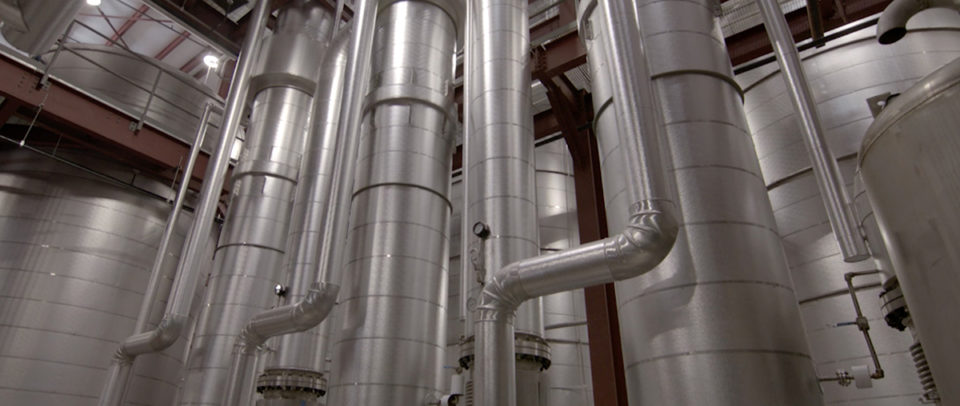
Prairie AquaTech has several 50,000-gallon bioreactors in which the company ferments soybean meal with a naturally occurring microorganism.
Luecke stresses that ME-PRO’s strength is about what’s in the product as well as what is not. In extensive trials, which the company conducts in its own recirculating aquaculture system (RAS) at its research facility, ME-PRO has been shown to drastically lower phosphorous discharges from fish waste and is contaminant-free.
“If you’re feeding in an aquatic environment, anything not digested by fish or shrimp ends up back in the water. Water quality leads to many issues, like disease, unwanted growth of algal blooms and polluted estuaries,” Luecke explained. “We’re focused on the digestibility of the nutrients in the feed formulation. If we focus on having the most digestible nitrogen and phosphorous, it won’t be our ingredient causing issues in aquatic environments. When a farmer buys a metric ton of feed with our ingredient, they’re getting full utilization of the nutrients.”
Also read: Green Algae - Substitute Partial Pellet Feed for Tilapia
ME-PRO is easily extrudable and has good pellet integrity, said Luecke, adding that its blond color was carefully developed because feed formulators and fish nutritionists “care very much about the characteristics that ingredients bring to a formulation.” ME-PRO, by design, has a neutral color, odor and flavor, which Luecke said offers feed formulators “max flexibility.”
The company has worked with numerous aquaculture producers around the world, and with a variety of species. Luecke said that it’s Prairie AquaTech’s role to listen to them, help them create market share with unique feed formulations and make them money.
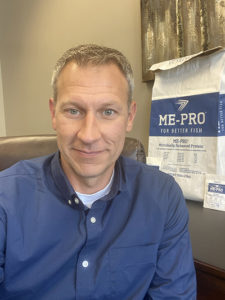
Prairie AquaTech CEO Mark Luecke will present at the upcoming virtual GOAL conference.
“We’re also creating traceability, right to the soybean farmer’s farm,” said Luecke. “We have a small group of farmers in our investor network, and helped them identify the right soybean genetics, and work with them all the way down to the final product, helping them with best agronomic practices to create the most sustainable process. We identity-preserved those beans and will be delivering a QR code that goes all the way back to the field. Consumer trust is paramount, and if we can do that, as an ingredient company, that’s big.”
Prairie AquaTech, founded in 2011, employs about 50 people, with about 35 in the manufacturing facility, said Luecke, and the others in sales and R&D. While soy is the primary plant product being used because of its extensive and successful usage in aquaculture to date, Luecke said the company is looking at other substrates like dried distillers grain and canola.
Also read: Net Gains in Aquaculture Net Technology
“The center of our technology is fermentation,” Luecke said, acknowledging that there will be multiple winners in aquaculture feed innovations as the industry aims to be less dependent on marine ingredients like fishmeal. Luecke is keen to point out that ME-PRO is an “extension” of fishmeal.
We’re focused on the digestibility of the nutrients in the feed formulation. If we focus on having the most digestible nitrogen and phosphorous, it won’t be our ingredient causing issues in aquatic environments.
“We need all protein sources to win. Large companies are looking for markets they can move into that would command an even higher value than aquaculture feed,” he added. “If ME-PRO can supplement fishmeal, it’s an important position for us. We can replace it 100 percent, but a lot of feed mills and farms are hesitant. I think most feed mills and producers have sustainability in mind when they’re building formulations and product offerings. ME-PRO becomes a tool for them in their mission.”
Prairie AquaTech may be a thousand miles from the nearest ocean, but with the rise of RAS ventures across the United States and elsewhere, the company finds itself in the heart of aquaculture’s nascent growth curve. Because with RAS, nothing is more important than water quality, and ME-PRO fits their needs, Luecke said.
“The most expensive aspect of RAS is the biofiltration. We can reduce the stress on that system. If more of the [aquafeed] nutrients are digestible, recirculation is going to happen a lot more smoothly. ME-PRO is the perfect RAS ingredient.”
And while some employees often join the company with limited aquaculture knowledge, Luecke said at Prairie AquaTech they learn quickly: “When you have part of your local economy tied to something, everyone learns and pays attention.”
Source: Aquaculture Alliance













